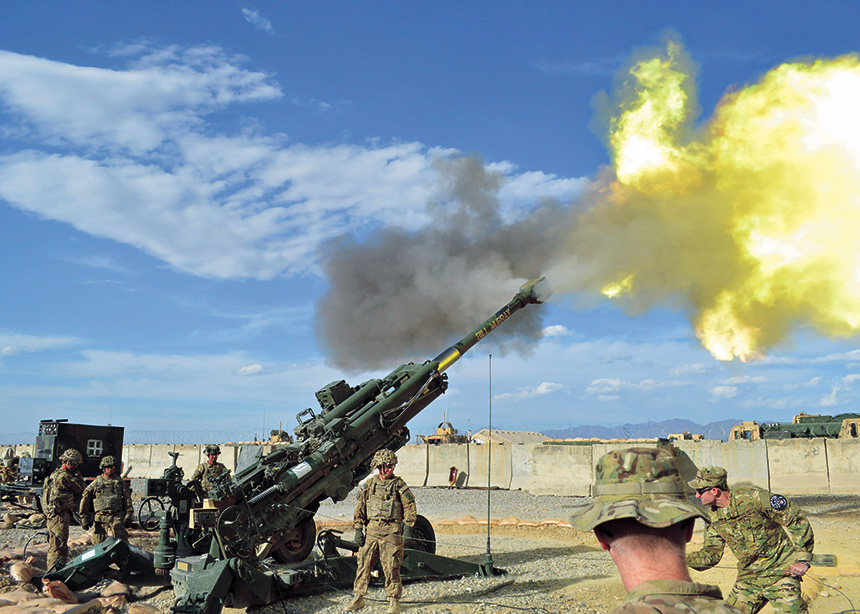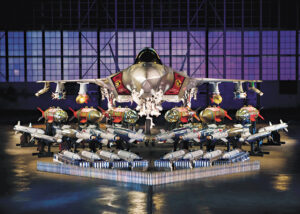Given Vladimir Putin’s ruthless aggression, and the obvious limits of sanctions, and the brutal suffering of Ukrainians, is there room to question military response to Russia? What is the role of a peace church in this scenario?
Are we still, effectively, a peace church?
Much of the talk and action in Canadian church circles has involved humanitarian relief, refugee resettlement, and general “pray for peace” expressions. All valuable and critical.
There is less talk about the fact that our government is using our tax dollars to buy weapons. The governing Liberals have spent about $150 million on military aid to Ukraine, as of mid-May, with another $500 million allocated for the 2022-23 fiscal year. Canada’s contributions have included bullet-proof vests, meal kits, machine guns, up to 7,500 hand grenades, about 1.5 million rounds of ammunition, four M777 155mm Howitzers, eight armoured vehicles, and up to 4,500 M72 rocket launchers.
These weapons will kill people. And, some would argue, ultimately prevent deaths of more people.
What does the church have to say? Not a lot. But Mennonite Central Committee (MCC) Canada has spoken up and seen an increase in interest around peace among constituents. In an April 6 letter to the federal minster of foreign affairs and minister of international development, MCC Canada executive director Rick Cober Bauman urged “caution around both the selling and providing of arms [to Ukraine] and the direct participation with or training of those involved in military missions.”
He urged the government to instead “play a leading role in advocating for the use of nonviolent tools, such as diplomacy, disarmament, conflict resolution, international courts and support for grassroots peacebuilding and nonviolent resistance.”
Quakers in Canada have also spoken up. In an open letter to the Canadian Government, the Canadian Friends Service Committee (CFSC) writes: “War is a futile problem-solving strategy. It does not lead to peace, democracy or security. Its predictable failure comes at tremendous cost to human lives, development and well-being.” The letter also expresses heartache over the suffering in Ukraine.
Matthew Legge, the CFSC’s communications coordinator, asks a simple question: “What good do we expect from Canadian military intervention?” He points to Libya, Afghanistan and Iraq, saying there is “precious little” evidence to support any assumption that military involvement will lead to positive outcomes.
He insists that war is never inevitable or the only option, saying there were steps that various parties could have taken to avoid the invasion. He insists the money Canada is spending on military aid would be much better spent supporting peacebuilding initiatives.
Retired Manitoba farmer Ernie Wiens agrees that Canada’s military spending—both for Ukraine and generally—could do great good in the world if redirected. “Can we begin to imagine what those billions would do,” he asks, if they were used to address human need?
Wiens and his wife Charlotte have been active with Conscience Canada since 2007. The organization advocates for a change in Canadian law that would allow citizens to conscientiously object to their tax dollars going toward military uses. They encourage Canadians to redirect the military portion of their taxes (4.4 percent of net federal income tax) toward the organization’s Peace Tax Fund, where the money is held in trust. Alternatively, people can simply send a form with their tax return, saying they “support the creation of a government-controlled Peace Fund,” to which the military portion of taxes could be diverted.
Part of why the Wienses got involved with the organization was an article in this publication in which Janet Plenert asked what would happen if a thousand Mennonites would take the Conscience Canada challenge. Wiens says that, in his “naivety,” he thought surely there would be a thousand Mennonites willing to do so. He wanted to be one of them.
The number of Mennonites and others actually willing to redirect military taxes—which is an act of civil disobedience—is a small fraction of Plenert’s vision. In fact, the organization contemplated folding altogether this year, although ultimately decided not to.
Wiens traces his pacifist passion to his Mennonite upbringing, some formative Bible passages (Micah 4, Ephesians 2, and the Sermon on the Mount, among them); and the visit of MCC’er Dan Zehr, who had been in Vietnam, to his home congregation of Glenlea Mennonite Church in Manitoba when Wiens was a young man. Zehr imagined an American youth and a Vietnamese youth enlisting in their armies for similar reasons, then coming up over opposite sides of a hill in battle to face each other. “Who should shoot first?” Wiens recalls Zehr asking.
With respect to Ukraine and the brutality of Putin, Wiens says it can seem like a military response is the only option, but he feels Canada would do better to step back from NATO, take a neutral stance, and redirect military spending. He notes that, for the cost of one soldier, Community Peacemaker Teams could deploy many peacemakers.
Wiens would like to see the church be more vocal. “In a sense, we become silenced because we don’t want to offend,” he says. “Meanwhile the carnage goes on.”
And even though this is in some ways a most inopportune time to suggest alternatives to military intervention, Wiens notes a recent article on the topic, in which Sojourners editor Jim Rice writes: “Moral analysis does not wait for the correct, acceptable, poll-tested moment. History is replete with examples of movements that insisted and persisted in their efforts, even when the time was not ‘right’ and the cause was ‘impossible.’ ”
And so, while many Christians continue the good work of addressing humanitarian needs arising from the Russian invasion, Conscience Canada also carries on, and organizations like MCC continue to support peacebuilding efforts that might just help to avert the next invasion somewhere else in the world.








Leave a Reply
You must be logged in to post a comment.